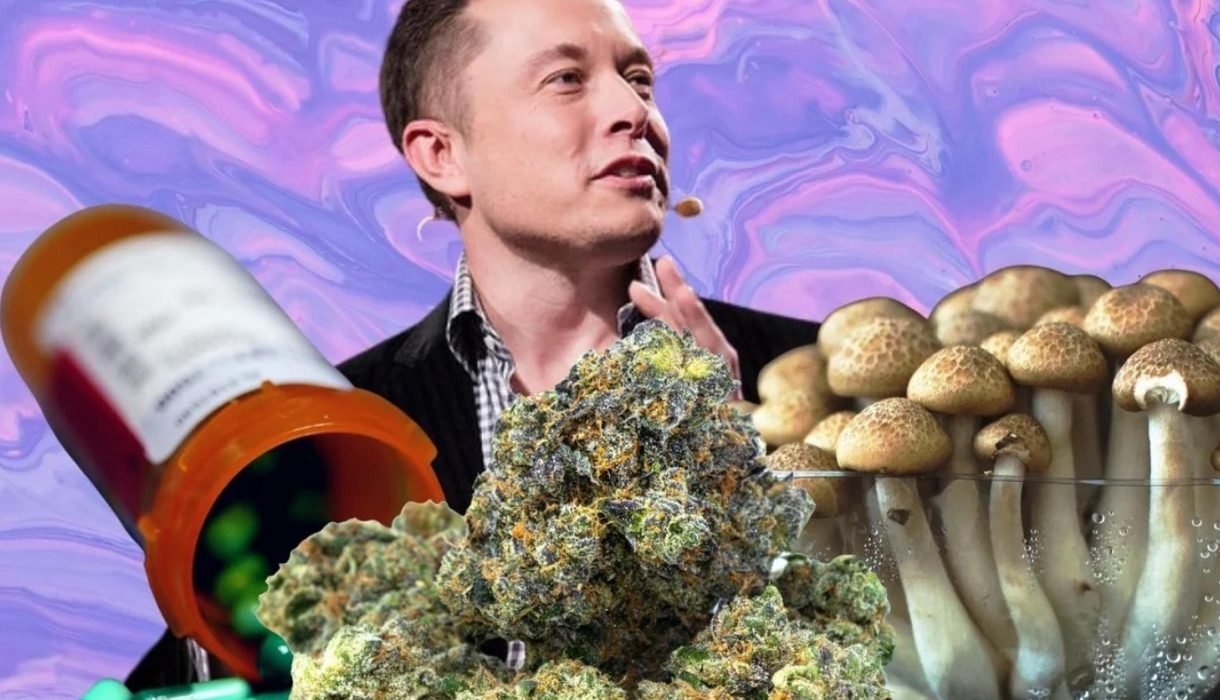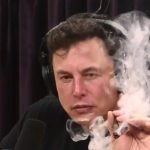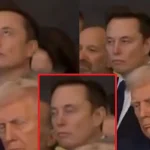
Inside the Storm: Elon Musk, Drugs, and Power in the Age of Chaos
Posted in :
Elon Musk’s drug use and erratic behavior, revealed in the New York Times, highlight not just personal chaos but a broader systemic immunity for the powerful. Tied to Trump, shielded by politics, and amplified by media, Musk’s saga is emblematic of how spectacle replaces accountability in modern America.
The swirling controversy around Elon Musk’s reported drug use, the apparent double standards in political circles, and the broader implications for power dynamics in the US. Drawing from a recent New York Times report and lively commentary, this blog post dissects the intersection of addiction, influence, and public perception—with a dash of personal reflection and wry curiosity.
The other night, I found myself scrolling social media when a friend pinged me: “Did you see the Times piece on Musk’s wild side?” Honestly, by now, nothing phases me about Elon Musk. Still, the New York Times report felt like one of those moments you both saw coming and can’t quite look away from. Maybe you’ve watched from the sidelines, or maybe you’ve been the person texting with disbelief as headlines roll in—either way, the spectacle pulls you in. Let’s talk about how we got here and what this tells us about how power really works.
Elon Musk, Drugs, and the Public Gaze: More Than Tabloid Fodder?
The latest New York Times report on Elon Musk’s drug use isn’t exactly breaking news for those who have been following the story closely. For months, whispers and rumors have circulated about Musk’s erratic behavior, his open use of substances, and the growing chaos in both his personal and professional life. The Times’ headline—focusing on Musk “juggling drugs and family drama” as he entered the orbit of President Trump—feels less like a revelation and more like a confirmation of what many already suspected.
Unpacking the New York Times Report
The New York Times report details a pattern of substance use that goes far beyond the occasional recreational indulgence. According to the article, Musk’s drug use included ketamine, ecstasy, psychedelic mushrooms, and Adderall. He reportedly traveled with a daily medication box containing about 20 pills, some of which were marked as Adderall. The report quotes sources saying,
“He told people he was taking so much ketamine… it was affecting his bladder, a known effect of chronic use.”
Research shows that chronic ketamine use can indeed cause significant urinary tract issues, a fact noted by the National Institute of Health.
The image of Musk with his infamous ‘pill box’—twenty pills a day, a mix of prescription stimulants and party drugs—paints a picture of someone living on the edge. The details are lurid, but they’re also deeply human. Addiction, after all, is not unique to tech moguls or billionaires. It’s a medical condition that can affect anyone, regardless of status or wealth.
Public Spectacle vs. Private Struggle
What makes Musk’s situation different is the sheer scale of the public gaze. When a private citizen spirals due to drug use, the world rarely notices. But when the person in question is the head of a rocket company, a social media platform, and a key player in the political arena, every misstep becomes a headline. The New York Times report is just the latest in a long line of media deep-dives into the personal lives of powerful figures.
There’s a strange dynamic at play here. The public spectacle of a celebrity’s downfall becomes part of the narrative arc—almost a rite of passage for modern tech moguls. Their personal struggles are dissected, analyzed, and sometimes even mocked. The spectacle often overshadows the underlying issues, turning real suffering into entertainment. As one observer put it,
“People that are in the spiral of addiction should make zero decisions, period, much less decisions about the United States of America.”
The Media’s Role: Scrutiny or Spectacle?
So what’s the “right” reaction from the media? Does public scrutiny actually change the underlying behavior, or does it simply add fuel to the fire? The New York Times headline focuses on Musk’s spiraling personal life, but the coverage often stops short of meaningful analysis or calls for intervention. Instead, it becomes another chapter in the ongoing saga of Musk’s public persona—a train wreck that people can’t look away from.
There’s a real dilemma here. On one hand, the public has a right to know if someone with immense power and influence—someone making decisions that affect millions—is struggling with untreated addiction. On the other hand, the relentless coverage can feel exploitative, turning personal pain into public drama. Regular people with addiction issues often fall through the cracks, invisible casualties in a system that only notices when the stakes are impossibly high.
A Personal Reflection
I can’t help but think of a friend I once watched become smaller than life through addiction. There were no headlines, no public reckoning—just a slow, quiet unraveling that most people never saw. The difference, of course, is scale. When you own a rocket company, your struggles become everyone’s business. For better or worse, the public gaze transforms private pain into a spectacle, leaving us to wonder whether anything truly changes as a result.
- Elon Musk’s drug use reportedly included ketamine, ecstasy, mushrooms, and Adderall.
- Media scrutiny of celebrity addiction often leads to spectacle instead of substantive intervention or consequences.
- Chronic ketamine use can have serious health effects, including bladder damage.
- The public gaze amplifies the drama, but rarely addresses the root causes.
Rules for Some, Immunity for the Powerful: Why Standards Don’t Stick
There’s a saying I’ve heard in workplaces: “Rules are for the little people.” It’s a phrase that echoes in my mind every time I read about the latest SpaceX controversy or see headlines about the Musk Trump relationship. One where standards apply to most, but not to those at the very top. Especially not to Elon Musk is not fair.
Let’s start with the basics. SpaceX, as a major government contractor, is required to maintain a drug-free workforce. Random drug testing is the norm for employees. But, as reported in the New York Times, Musk himself reportedly receives advance warnings about upcoming drug tests. The company didn’t respond to questions about these warnings. The rules that apply to everybody else don’t apply to them. And this is what authoritarians do.
I’ve worked in environments where even the whiff of policy violation—let alone drug use—meant immediate consequences. I once saw a team leader get reprimanded for showing up late after a night out. The contrast is surreal. At SpaceX, the rank and file know the rules are enforced. But at the top, the standards seem to evaporate. It’s “rules for thee, not for me,” playing out in real time.
Musk’s orbit has shifted, especially as he’s become more entwined with Trump and MAGA circles. Enabled by a Republican Congress and supported by MAGA voters, Musk’s influence has only grown. There’s a sense that, because of these connections, scrutiny and accountability just don’t stick. The cruelty is their brand, the transcript says—almost as if the spectacle of getting away with it is the point.
Research shows that Musk’s political ties have shielded him from the kind of fallout that would sink others. During the 2024 Trump campaign, Musk was a major donor, contributing nearly $275 million. His support coincided with reports of frequent drug use—ketamine, ecstasy, mushrooms, Adderall—sometimes daily, according to sources close to him. The New York Times reported that Musk’s drug use was well known, and yet, investigations or official statements were slow to materialize, if they came at all.
Meanwhile, the White House declined to comment on whether Musk was ever asked to take a drug test. SpaceX, for its part, didn’t answer questions about the alleged warnings Musk received. The silence speaks volumes. If this were a public figure from a different background or political party, would the reaction be the same? I doubt it. We’ve seen how quickly outrage can build, how investigations can be launched at the slightest provocation—when the target isn’t protected by the right connections.
There’s a double standard at play. Political affiliations influence media coverage, delay investigations, or even make them disappear.
‘The rules that apply to everybody else don’t apply to them. And this is what authoritarians do.’
It’s not just about Musk. It’s about a system that rewards proximity to power and punishes those without it.
Breaking the rules isn’t just tolerated—it’s flaunted. Pardons are handed out transparently, as if to say, “I can break the laws for certain people, and you have to follow along.” It’s an intimidation tactic, a way to remind everyone who’s really in charge. I hadn’t thought of it that way before, but it makes sense. It’s not just corruption; it’s a demonstration of power.
All of this plays out against the backdrop of Musk’s erratic behavior—shooting rockets into the air, reportedly “up on pills and drugs and Adderall,”, while running Tesla and SpaceX. At what point, someone wonders, do shareholders step in and say, “You have to step down. This is not a well man.” The ambiguity persists, and so does the immunity.
In the end, the SpaceX controversy and the ongoing Musk Trump relationship illustrate a broader truth. Standards don’t always stick, especially when power, money, and political connections are in play. The rules are there—until they aren’t.
Tangled Ambitions, Mutually Assured Chaos: Power, Scandal, and the American Brand
When I look at the Musk Trump relationship, what stands out isn’t just the headlines or the endless social media noise. It’s the sense that both men—Elon Musk and Donald Trump—operate with a kind of mutually assured destruction pact. They enable each other, they use each other, and somewhere in the middle, the lines between business, politics, and personal drama blur so much that it’s hard to tell where one ends and the other begins. It’s not just about the Trump campaign or the latest SpaceX controversy. It’s about how power, scandal, and spectacle have become the American brand.
Take Musk’s role as a government contractor. SpaceX isn’t just a private company; it’s deeply intertwined with federal contracts and White House access. Musk’s business entanglements stretch from Tesla to the DOGE initiative, and his influence in the government efficiency drive was no small thing—he reportedly targeted $2 trillion in federal spending cuts. The fact that he donated $275 million to the Trump campaign (research shows) only deepens the transactional nature of their relationship. As Musk himself put it,
“I can’t be president, but I can help Trump defeat Biden, and I will.”
But all this power comes with chaos. Federal investigations have circled Musk for years: crashes involving Tesla’s self-driving cars, allegations of racism at his factories, and questions about government subsidies. There’s a sense that scandal just bounces off him. Maybe it’s the media fascination, maybe it’s the public’s appetite for drama, or maybe it’s the way Musk manages to turn every controversy into another chapter of his larger-than-life story. Either way, the Musk Trump relationship seems to thrive on this chaos, each man shielding the other from consequences.
The impact on the American brand is hard to ignore. Internationally, these scandals invite mockery and skepticism. The world watches as business, drugs, and family drama ricochet through the highest levels of tech and politics. The transcript makes it clear: Musk’s drug use, his erratic behavior, and his family chaos are not just personal issues—they’re public ones. The spectacle is so big, so relentless, that it almost feels like reality TV. Except here, the stakes are government contracts, national policy, and real lives.
What’s striking is how Musk’s personal life bleeds into his public role. The baby-mama drama, the pro-natalist advocacy, and the contradictions of MAGA family values all play out in the open. Musk urges his wealthy friends to have more children, donates millions to population growth initiatives, and yet, his own approach to family seems chaotic at best. He’s been married multiple times, has children with several women, and even reportedly asked strangers on Twitter to have his baby. It’s a kind of spectacle that would be dismissed as absurd—if it weren’t so real, and if it didn’t involve someone with such outsized influence.
There’s a wild card here that I can’t shake: if you swapped Musk for any other billionaire, would the world still watch? Or is it something about Musk’s persona, his willingness to live out every scandal in public, that keeps us glued to the screen? I’m not sure. But I do know that the combination of business, politics, and personal chaos damages more than just reputations. It chips away at the credibility of American institutions themselves. When the lines between personality and policy are this blurred, the whole system starts to look unstable.
In the end, the Musk Trump relationship is a mirror for our times. It’s messy, it’s transactional, and it’s powered by a media and public that can’t look away. The scandals, the investigations, the family drama—they’re all part of the show. But unlike reality TV, the consequences are real. Government efficiency, national reputation, and the future of American leadership are all on the line. And as much as I’d like to look away, I can’t. Because this is the new American brand: tangled ambitions, mutually assured chaos, and a spectacle that never seems to end.
TL;DR: When the world’s most famous disruptors act out, does the spotlight bring consequences or is it just part of the brand? Musk’s saga is about more than drugs and drama—it’s a mirror to the double standards we all live with.
ElonMusk, DrugUse, NewYorkTimesReport, KetamineUse, EcstasyMushrooms, Adderall, TrumpCampaign, MuskTrumpRelationship, SpaceXControversy, GovernmentEfficiency,ElonMusk, MAGA, SpaceX, druguse, NewYorkTimes, billionaireimmunity, Trump, mediaspectacle, ketamine, governmentcontracts
#ElonMusk, #DrugUse, #PoliticsUnfiltered, #NYTReport, #TechControversy, #PowerDynamics, #SpaceX, #TrumpConnection, #KetamineCrisis, #BillionaireCulture,#ElonMusk, #MAGA, #DrugScandal, #SpaceX, #PoliticalCorruption, #MediaSpectacle, #Accountability, #AmericanPolitics

